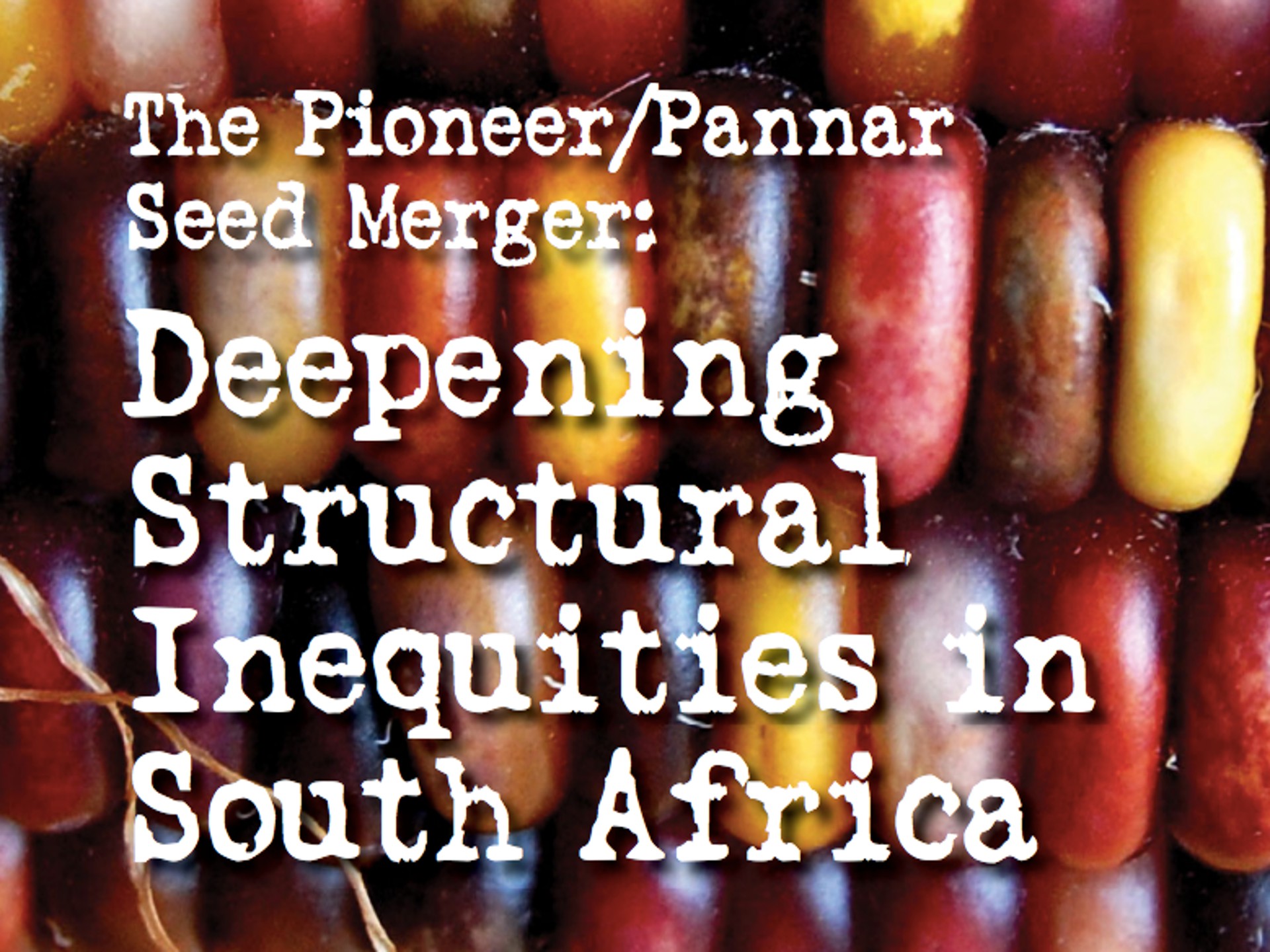Latest Resources

23 November 2012
Harmonisation of Africa’s seeds laws: a recipe for disaster
The core of the paper is focused on the pressures being exerted on African governments to adopt the 1991 Act of the International Union for the Protection of Plant Varieties (UPOV), particularly through regional harmonisation of plant variety protection (PVP) policies and laws. We also discuss the adverse impacts PVP laws will have on the […]

19 November 2012
ARIPO’s PVP law undermines Farmers’ Rights & Food Security in Africa
The African Regional Intellectual Property Organization (ARIPO) has proposed a draft regional harmonized policy and legal framework on Plant Variety Protection (PVP), based on the International Union for the Protection of New Varieties of Plants (UPOV) Convention of 1991. The draft legal framework, if adopted, will have significant adverse consequences for small-scale farmers that dominate […]

6 November 2012
Submission by ACB and African CSOs to ARIPO on its draft PVP law and policies, November 2012
During October/November 2012, a number of African groups from civil society in Africa supported a submission to ARIPO on its draft policy and legal framework for PVP. In such submission, the groups pointed out that draft legal framework was not written with the interests of sub-Saharan African states in mind, particularly ARIPO member states. This […]

25 September 2012
Open Letter to African Governments and AGRA (The Alliance for a Green Revolution in Africa)
The undersigned 28 civil society organisations support and represent the interests of smallholder farmers and livestock keepers from Ethiopia, Kenya, Mozambique, South Africa, Tanzania, Uganda, Zambia, and Zimbabwe, and are concerned with the conservation of agricultural biodiversity for livelihood security and food sovereignty. View the full statement here.

13 September 2012
The Pioneer/Pannar seed merger: deepening structural inequalities in South Africa
In this briefing, we deal with the Pioneer/Pannar seed merger, outlining the evidence led by the ACB in opposing the merger, what is at stake for South Africa if the merger is approved and the extent to which the merger will deepen structural imbalances in the South African economy. Read the briefing here.

31 July 2012
Call on BASF, Bayer, and Syngenta to stop marketing highly hazardous pesticides
PAN Germany, a charitable organisation which provides information on the adverse effects of pesticides and promotes environmentally friendly and socially just alternatives. We will send the following letter in your name: To: Syngenta, Martin Taylor, Chairman of the Board of Directors Bayer CropScience, Sandra E. Peterson, Chief Executive Office BASF, Wayne T. Smith, Member of […]

28 May 2012
Smallholder farmers and consumers to pay the price for corporate seed merger
The African Centre for Biosafety (ACB) learned today that US multi-national seed company Pioneer Hi-Bred has been granted permission by the Competition Appeal Court, to acquire the nation’s last major independent seed company, Pannar seed. The ACB was an intervening party, opposing the merger in the public interest. In granting the merger, the court has […]

15 May 2012
Big Business Drives SA’s Biofuels Programme
In late February 2012 leading figures from the fossil fuel industry met in Pretoria to forge ahead with the government’s highly controversial plans for an SA biofuels industry. The catalyst for this meeting was the publication by the government last September of draft regulations for the mandatory blending of biofuels in the nation’s fuel supply. […]

9 January 2012
ACB comments on biofuels mandatory blending
The African Centre for Biodiversity hereby lodges its objections and comments to the draft regulations regarding the mandatory blending of biofuels with petrol and diesel. Read here.

14 October 2011
ACB applauds tribunal decision to prohibit Pioneer Hi Bred and Pannar seed merger
The African Centre for Biosafety (ACB) applauds today’s decision of the Competition Tribunal (Tribunal) to prohibit the seed merger between multinational seed company Pioneer Hi Bred, and South Africa’s largest seed company, Pannar Seed. During December 2010, the Competition Commission prohibited the merger and the merging parties referred the Commission’s decision to the Tribunal for […]
